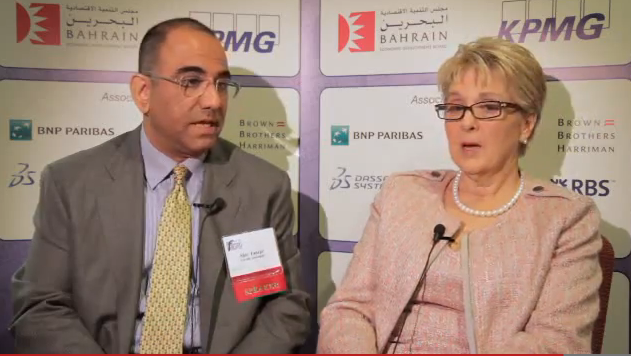How can portfolios be protected from volatility in a context so marked by politics and with so much uncertainty? This is perhaps one of the headaches for many managers, for which each firm has been developing different strategies that allow them to contain the risks. In this interview, Emma Duhaney, Senior Product Specialist at Insight, a management company owned by BNY Mellon, explains the formula which they apply in the management of BNY Mellon Global Short-Dated High Yield Bond.
“We focus our investment in bonds with a very short-term maturity, which allows maximum reduction of volatility. The key is the assets we choose and the way we build the portfolio to ensure that there is no default,” explains Duhaney. In her opinion, the key is to reduce volatility by buying the bond when it is about to materialize because, “default risk is minimal and it is unlikely that the price will move.”
This is the strategy applied to the BNY Mellon Global Short-Dated High Yield Bond Fund, an actively managed fixed income product that seeks to provide returns in excess of Libor. In order to do this, it invests mainly in a high-yield bond portfolio, in other words, lower than investment grade, in the short term, but also invests in convertibles, loans, and securitization bonds. In addition, it selectively sells protection in credit derivatives.
Now, for this principle to work, how the portfolio is made up, and which companies are part of it, are both very important. “We have a team of analysts who analyze companies. When your strategy is short bonds, there are a number of things that you have to check, including: whether they are companies that will be able to pay, their capital structure, when their bonds mature, whether the company is flexible, or if their benefits increase. In short, all the aspects that come into play to evaluate its ability to pay or its capacity to refinance,” says the expert.
She doesn’t like the retail sector because it is extremely changeable, but she does not discard any others because, she points out, they focus more on the duration and quality of the bond than on a specific area of economic activity. “We have a system called ‘the main check list’ by which we seek to identify any risk that can be generated in companies and which affect profitability. For example, if there are chances of it being bought, or any possible regulatory risks. We try to detect any aspect that could jeopardize the payment of their bonds,” she points out.
For Uncertain Environments
According to Duhaney, this strategy is perfect for times as uncertain as they are now, because it is designed for environments with increasing spreads and changing interest rates. “We find that many traditional high yield fund managers are selling short-term bonds because bonds with less than one year of maturity are not within their index, which allows us to buy the type of asset we want at cheaper prices. And since we work in the short-term, it is easy to have liquidity to continue acquiring new bonds,” says the expert.
Among the risks she identifies in the market right now, Duhaney agrees with the widespread views of the sector: politics. “It always raises uncertainty, and right now we have elections coming up in Holland, France, and Germany. This always means volatility because investors have seen big changes in the last UK and US elections, so they are worried about what will happen in Europe this year.”
To political risk, we must add the decisions taken by central banks such as the European Central Bank (ECB) and the Federal Reserve (Fed), since obviously a rise in interest rates will impact the bond market. “We believe that the Fed will raise rates twice this year, maybe if the growth of the US economy is very strong, it will be more; but, currently, we think it will be twice in 2017,” she says.
She is cautious regarding Trump, and is waiting to see what the first economic measures taken by the new administration will be, and reminds us that trade and tax policies are the most important ones because of the impact that his electoral promises would have on them. As a matter of fact, she focuses on the commercial side and warns that it would be highly negative if Trump “gets into a trade war because it would cause significant restrictions on world trade.”


 By Fórmate a Fondo
By Fórmate a Fondo